Other

“Sacrificial ink-writing technique allows 3D printing of large, vascularized human organ building blocks 20 people die every day waiting for an organ transplant in the United States, and while more than 30,000 transplants are now performed annually, there are …
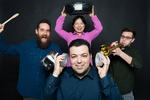
“Mechanical engineers have developed an “acoustic metamaterial” that can cancel 94 percent of sound What sounds would you mute if you could? A pair of Boston University mechanical engineers are asking that question, with the ever-increasing din of drone propellers …
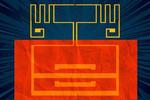
“Device made from flexible, inexpensive materials could power large-area electronics, wearables, medical devices, and more. Imagine a world where smartphones, laptops, wearables, and other electronics are powered without batteries. Researchers from MIT and elsewhere have taken a step in that …
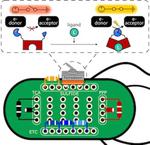
“Rice University scientists create electrical protein switches triggered by chemicals Scientists at Rice University have developed synthetic protein switches to control the flow of electrons. The proof-of-concept, metal-containing proteins made in the Rice lab of synthetic biologist Joff Silberg are …

“Fabricating soft materials at the millimeter scale paves way for medical and environmental tasks Roboticists are envisioning a future in which soft, animal-inspired robots could be safely deployed in difficult-to-access environments, such as in delicate surgical procedures in the human …
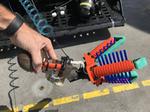
“Soft grippers can be 3D printed on board ships to safely sample different types of sea life The deep ocean – dark, cold, under high pressure, and airless – is notoriously inhospitable to humans, yet it teems with organisms that manage to …
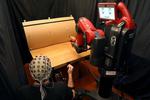
“Computer Science and Artificial Intelligence Laboratory system enables people to correct robot mistakes on multiple-choice tasks. Getting robots to do things isn’t easy: Usually, scientists have to either explicitly program them or get them to understand how humans communicate …
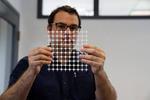
“Researchers at MIT’s Little Devices Lab have developed a set of modular blocks that can be put together in different ways to produce diagnostic devices. These “plug-and-play” devices, which require little expertise to assemble, can test blood glucose levels …
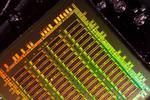
“Technique would allow addition of optical communication components to existing chips with little modification of their designs. Two and a half years ago, a team of researchers led by groups at MIT, the University of California at Berkeley, and Boston …

“Mechanical Engineering Professor Bingqing Wei leads team to curb formation of harmful dendrites in lithium metal batteries From smartphones to electric vehicles, many of today’s technologies run on lithium ion batteries. That means that consumers have to keep their …

